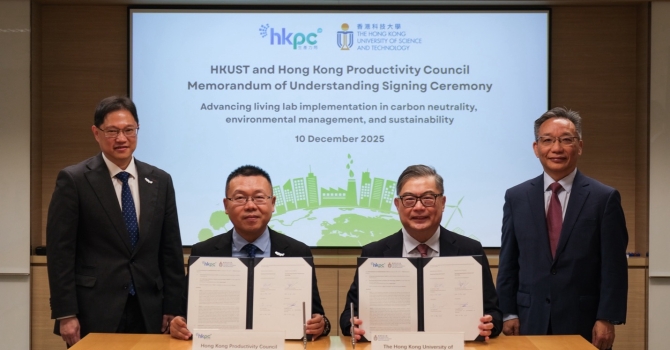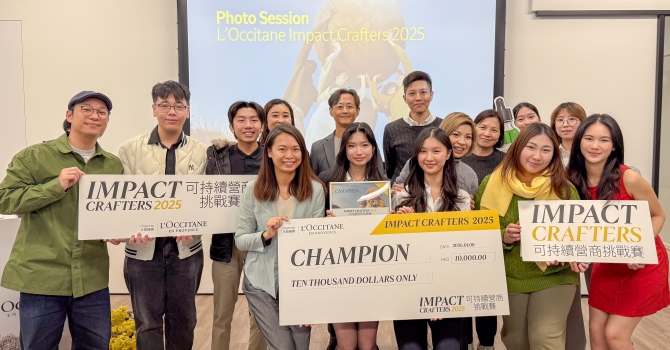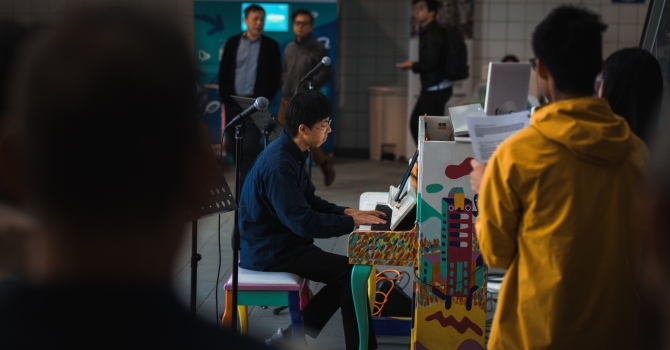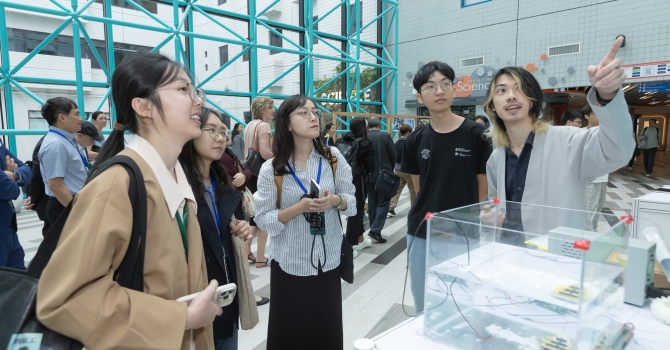Sustainability and Net-Zero Carbon: The University’s Strong Commitment
Over the past eight years, HKUST has made great strides in embedding sustainability actions and strategies into our operations and educational priorities. The university successfully completed its first sustainability master plan (HKUST 2020 Sustainability Challenge) and developed an even more aggressive plan for 2028. We created a new “campus as a living lab” framework for supporting sustainable and smart campus projects, a framework which has now supported over 30 project teams ranging from the installation of indoor air-quality sensors to improve well-being to AI-driven tracking systems for inventorying tree and bird species. We are installing the largest renewable energy project in Hong Kong, and have embedded sustainability concepts so widely into our curriculum and co-curricular activities that more than 90% of our students graduate with at least one sustainability course under their belts.
However, there is much more to do. Our goal is to be a sustainability leader across the region and beyond, and a trusted resource for businesses and government alike. With grand generational challenges to solve in climate change, water scarcity, building a circular economy, and transforming food production systems, HKUST has a special responsibility to advance technical research, policy solutions, and educational expertise to spotlight a sustainable pathway forward.
To demonstrate our commitment, the university recently announced the establishment of the Sustainability/Net-Zero Office, effective September 1st 2021. This Office will continue to act as steward and facilitator of the new sustainability master plan ( HKUST 2028 Sustainability Challenge) but recognizing the urgency of climate change, the Office will highlight “Net-Zero” in the title to emphasize our commitment and priority of crafting solutions and building a broad regional base of collaboration to address this crisis. The first assignment for the Office will be to build a roadmap for the university to meet the goal of becoming a net-zero carbon campus before 2050.
The Office will also assume the task of linking the Clear Water Bay campus and our new Guangzhou campus through sustainability initiatives and educational activities to ensure that sustainable and smart campus innovations can be shared and implemented on both campuses.
Finally, the Office will facilitate an ambitious new initiative called the Sustainable Consumer Program, aiming to engage over 100,000 students across all eight publicly funded universities in Hong Kong to adopt responsible consumption patterns in food, energy, water and other consumables.
This Office will report directly to VPABO so that the urgency of these issues can be addressed at the senior leadership level of our university. Davis Bookhart, formerly the head of the HSEO Sustainability Unit, will serve as Director. Bookhart already has experience in this area, as he came to HKUST after eight years as the founding director of the Office of Sustainability at Johns Hopkins University.
This development could not have been possible without the generous support of the Health Safety and Environment Office (HSEO) in giving the Sustainability Unit a great home over the past eight years. The university’s sustainability successes could not have been possible without their guidance, thoughtful insights, and leadership.



